GST : 24AAJCA7955Q1ZW
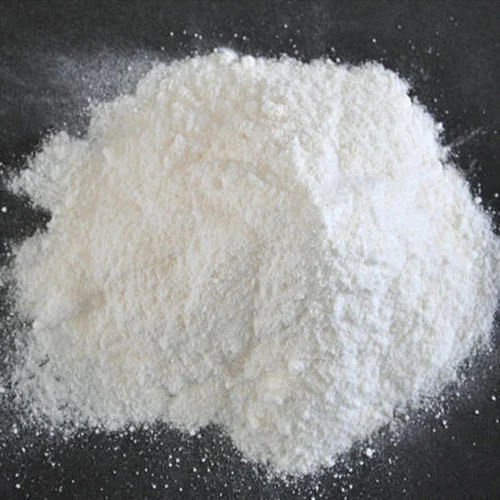
Lithium Carbonate
Product Details:
- Molecular Formula Li2CO3
- Density 2.11 Gram per cubic centimeter(g/cm3)
- Solubility Insoluble in acetone, ammonia, alcohol
- Boiling point 1,310 degree centigrade
- Melting Point 723 degree centigrade
- Poisonous Yes
- Form Powder
- Click to view more
X
Lithium Carbonate Price And Quantity
Lithium Carbonate Product Specifications
- Li2CO3
- Lithium Carbonate
- Insoluble in acetone, ammonia, alcohol
- 2.11 Gram per cubic centimeter(g/cm3)
- 1,310 degree centigrade
- 723 degree centigrade
- 554-13-2
- Industrial, Pharmaceutical
- Yes
- Powder
- Room Temperature
- Industrial Grade
Lithium Carbonate Trade Information
- 50 Per Month
- 2-12 Week
Product Description
From our wide range of products, we offer excellent quality Lithium Carbonate which is chemical compound with molecular formula Li2CO3 & also known as carbolith, dilithium carbonate, lithobid, lithizine, lithonate, duralith, cibalith-s, lithane, eskalith and lithotabs priadel. This chemical is utilized to treat mania, the elevated phase of bipolar disorder. Furthermore, the offered chemical can be availed from us at reasonable prices. Also, this inorganic chemical helps to control the symptoms of mania, which may include reduced need for hyperactivity, feelings of grandiosity, sleep, poor judgment, aggressiveness, and sometimes hostility.
Lithium Carbonate Properties:
1. CAS Number: 554-13-2
2. Chemical formula: Li2CO3
3. Molar mass: 73.89 g/mol
4. Appearance: Odorless white powder
5. Density: 2.11 g/cm3
6. Melting point: 723 degree centigrade
7. Boiling point: 1,310 degree centigrade
8. Solubility: Insoluble in acetone, ammonia, alcohol
9. Flash point: Non-flammable
Lithium Carbonate Applications:
1. Pharmaceuticals: Lithium carbonate is primarily used in the treatment of bipolar disorder and other mood disorders. It helps stabilize mood swings and reduce the risk of manic episodes.
2. Ceramics and Glass Industry: It is utilized in the production of ceramics and glass. It acts as a flux, reducing the melting temperature and improving the properties of the final product.
3. Lithium-ion Batteries: This chemical compound is a precursor material in the production of lithium-ion batteries, which are widely used in portable electronics, electric vehicles, and renewable energy storage systems. It is processed into lithium hydroxide or lithium carbonate, which are then used in battery cathodes.
4. Aluminum Smelting: Lithium carbonate is used as a flux in aluminum smelting. It aids in the removal of impurities and helps lower the melting temperature of aluminum oxide.
5. Air Treatment: It is sometimes used in air treatment systems to absorb carbon dioxide (CO2) and control humidity levels.
6. Pyrotechnics: This chemical compound is used in the manufacture of fireworks and flares to produce red-colored flames.
7. Chemical Synthesis: It is a precursor in various chemical synthesis processes, such as the production of lithium compounds and organic compounds.
8. Metal Surface Treatment: It is used in metal surface treatments for the removal of rust and other contaminants.
Lithium Carbonate FAQ:
Q. What is lithium carbonate used for?
Ans: Lithium carbonate is primarily used in the treatment of bipolar disorder and other mood disorders. It helps stabilize mood swings and reduce the risk of manic episodes. Additionally, it has applications in ceramics and glass manufacturing, lithium-ion battery production, aluminum smelting, air treatment, pyrotechnics, chemical synthesis, and metal surface treatment.
Q. How does lithium carbonate work in treating bipolar disorder?
Ans: The exact mechanism of action of lithium carbonate in treating bipolar disorder is not fully understood. However, it is believed to modulate neurotransmitter activity in the brain, particularly serotonin and norepinephrine, which play key roles in mood regulation.
Q. What are the common side effects of lithium carbonate?
Ans: Common side effects of lithium carbonate may include increased thirst and urination, hand tremors, weight gain, nausea, diarrhea, and dizziness. In some cases, it may also cause thyroid or kidney problems, so regular monitoring of thyroid and kidney function is necessary.
Q. How is lithium carbonate dosed?
Ans: The dosage of lithium carbonate varies depending on the individual's condition and response to treatment. It is usually started at a low dose and gradually increased to achieve the desired therapeutic effect while minimizing side effects. Dosage adjustments may be made based on blood lithium levels and individual tolerance.
Q. Is lithium carbonate safe during pregnancy and breastfeeding?
Ans: Lithium carbonate is generally not recommended during pregnancy, especially during the first trimester, as it may pose risks to the developing fetus. It can also pass into breast milk, so its use during breastfeeding should be carefully considered and monitored by a healthcare professional.
Q. What precautions should be taken when using lithium carbonate?
Ans: Patients taking lithium carbonate should stay adequately hydrated and maintain a stable salt intake. Regular blood tests to monitor lithium levels, kidney function, and thyroid function are essential. They should also avoid excessive consumption of caffeine and alcohol, as these substances can affect lithium levels and increase side effects.
Q. Can lithium carbonate interact with other medications?
Ans: Yes, this chemical compound can interact with various medications, including diuretics, ACE inhibitors, NSAIDs, and antidepressants. It's important to inform your healthcare provider about all medications, supplements, and herbal products you are taking to avoid potential interactions.
Physical Properties of Lithium Carbonate
Lithium carbonate is a white powder with a molecular formula of Li2CO3 and a CAS Number of 554-13-2. Its melting point is 723C, boiling point 1,310C, and density 2.11 g/cm.
Applications in Industry and Pharmaceuticals
It plays a key role in both industrial and pharmaceutical sectors. This versatile compound has applications in glass production, ceramics manufacture, and as a precursor in pharmaceutical formulations.
FAQs of Lithium Carbonate:
Q: What are the primary applications of Lithium Carbonate?
A: Lithium carbonate is used in industrial processes such as glass and ceramics manufacture and in pharmaceuticals as a precursor or raw material.Q: How should Lithium Carbonate be stored?
A: It should be stored at room temperature in a dry, well-ventilated area away from direct sunlight to maintain its stability.Q: What is the solubility profile of Lithium Carbonate?
A: Lithium carbonate is insoluble in acetone, ammonia, and alcohol, which impacts its handling and usage in different applications.Q: What precautions should be taken while handling Lithium Carbonate?
A: Since it is poisonous, proper safety equipment should be used during handling, and it should be kept away from open flame and moisture.Q: Where is Lithium Carbonate typically manufactured?
A: It is manufactured by chemical companies, often in industrial-grade facilities, and supplied by traders and exporters primarily, including India.Q: What benefits does Lithium Carbonate offer in manufacturing?
A: It improves durability and enhances properties in glass and ceramics, and in pharmaceuticals, it serves for product formulation and reaction chemistry.Tell us about your requirement

Price:
Quantity
Select Unit
- 50
- 100
- 200
- 250
- 500
- 1000+
Additional detail
Mobile number
Email
Other Products in 'Lithium Carbonate' category
Back to top



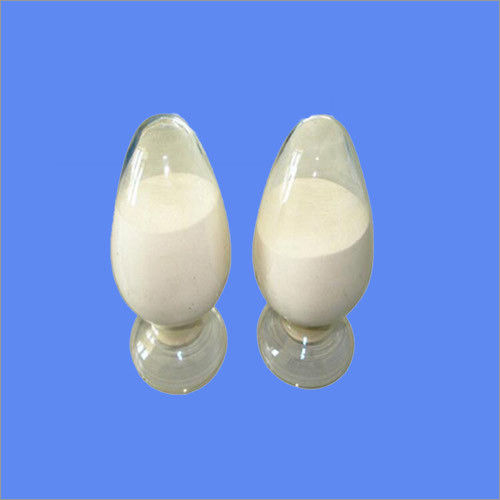
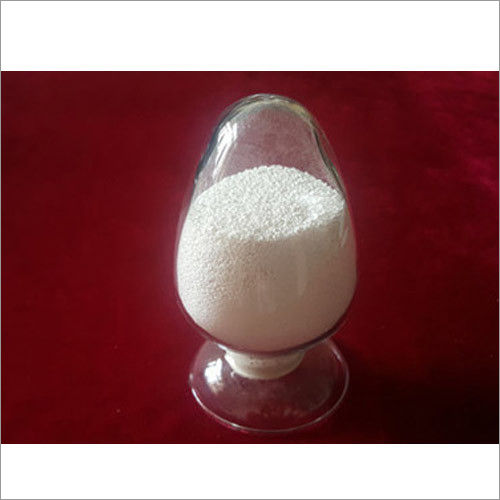
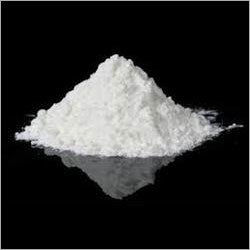
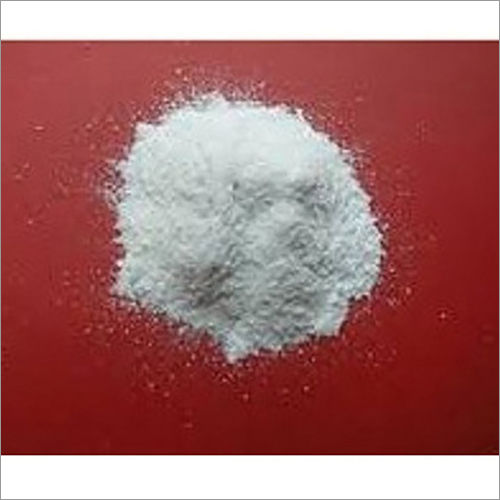
 Call Me Free
Call Me Free
 English
English Spanish
Spanish French
French German
German Italian
Italian Chinese (Simplified)
Chinese (Simplified) Japanese
Japanese Korean
Korean Arabic
Arabic Portuguese
Portuguese